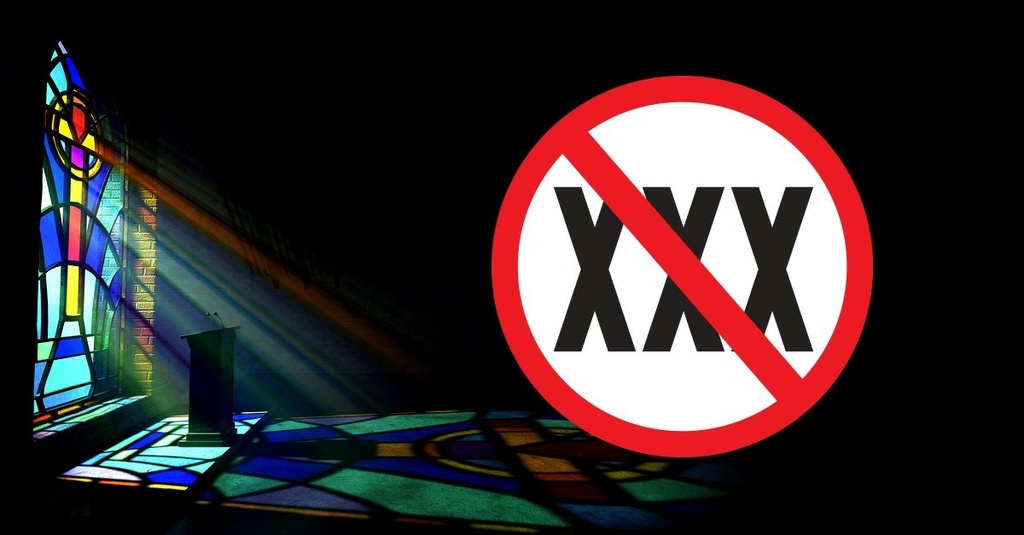
Pornography & Evangelical Statism
Evangelicals rightly recognize that our culture is not ready to follow Biblical law, but they wrongly conclude that we therefore must use statism to solve the problem.
Horrified by the evils of pornography, evangelicals frequently propose that the federal government monitor, control, and regulate the internet. This is asking the same government that defends and promotes sexual perversion to protect us from sexual perversion—absurd! But it is the only solution that a lawless church can envision. This article will seek to show a better way.
There is no question about the fact that pornography has become a crisis in our nation, destroying marriages, harming children, clogging the television networks and internet with filth, and filling our nation with rapists, perverts, and child abusers. But with every crisis there are tyrants ready to “fix” the problem by asking for more control. We need to recognize that the very government offering to fix the problem has been part of the problem by decriminalizing adultery, sexual perversions, and homosexuality.
Rather than using the evidence (pornography) of potential criminal acts as an excuse to control all internet activity, pornography could be used as additional circumstantial evidence to prosecute pornographers who are accused of the crimes of rape,1 incest,2 adultery,3 certain types of fornication,4 and homosexuality.5
Once Biblically defined criminal acts have been proven, those who produce, distribute, and sell porn could be tried as accomplices to the crimes, and the porn could be used as evidence against them. However, it must be kept in mind that even pornographers have the protections of Biblical due process, which includes proscriptions against entrapment,6 sting operations,7 and coerced testimony,8 and which includes protections such as the requirement of two or three actual witnesses,9 public trial,10 the right to face and cross examine your accusers,11 etc.
Evangelicals rightly recognize that our culture is not ready to follow Biblical law, but they wrongly conclude that we therefore must use statism to solve the problem.
God’s solution is conversion and discipleship, revival and reformation; it is bottom up transformation, not top down force. When we bypass grace, we usually end up leaving the limited civil government that God has ordained and begin to look to the civil government to be our savior. But if Christians across this nation would truly take advantages of the means of grace and the standard of God’s law as sufficient for every problem in life (2 Tim. 3:16–17), we would begin to see culture transformed.
Let us arise and build by laying aside carnal weapons and picking up the mighty weapons given by God (2 Cor. 10:4–6).
(c) 2019 Phillip Kayser. All rights reserved. Published by the Chalcedon Foundation with full permission of the author.
1. Deut. 22:25–30
2. Lev. 18:6–19; 18:20; 20:11–17
3. Lev. 20:10; 21:9; Deut. 22:21–24; John 8:4–11 [see the command to the lawful authorities]; 1Tim. 1:10)
4. Deut. 22:13–21
5. Lev. 18:22; 20:13; 1Kings 15:11–12; 22:46; 2Kings 23:7; Rom. 1:32; 1Tim. 1:10
6. The scribes, Pharisees and Herodians repeatedly tried to find Christ guilty of a crime by entrapment (Mark 3:2; 12:13; Luke 6:7; 11:54; 20:26; etc.). Entrapment was something known in ancient times (1 Sam. 28:9) but shunned by the righteous (1 Kings 3:16-28—they knew these were harlots, but citizens had not pressed charges) and condemned in Scripture (Daniel 6; Jer. 5:26; Ps. 141:9–10).
7. Sting operations and other diligent searches for evidence can only be engaged in after a citizen has brought charges (Deut 13:12–14; 19:15–21; Jer. 5:26; implied in lack of it with the harlots in 1 Kings 3, etc.).
8. There was to be no coerced testimony (even Achan whom God had already tried and convicted was only asked to give a voluntary confession in Josh 7:9-26). The teaching that a person is innocent until proven guilty is only found in Biblical religion. No torture or other methods to extort confessions was allowed. Thus Paul rightly protested when he was treated as guilty until proven innocent (Acts 16:37) and the trial of Christ (as much of a Kangaroo court as it was!) was stymied in their attempt to prove Christ guilty. This however does not mean that a person cannot be condemned when he testifies to his own guilt. See for example 2 Sam. 1:16: “For David had said to him, “Your blood be on your own head. Your own mouth testified against you when you said, ‘I killed the LORD’s anointed.’”
9. The case had to be established with a minimum of two witnesses, and in some situations, three (Deut. 19:15). Perhaps the provision for the optional three witnesses was judicial discretion when there was doubt.
10. Scripture did not countenance a Star Chamber kind of trial. All trials needed to be public or “in the gates” (Deut. 16:18; 17:5; cf. Deut. 21:19; 22:15; 25:7; Amos 5:12,15; Zech. 8:16; cf. historical precedent in Exodus 18:13). The court was to be neither secretive nor interventionist, but rather to receive appeals from the grass roots. In this case the crime “is found” by citizens (17:2) and “it is told” to the court (17:4). Lawsuit must initiate from the people and the trial must be a public trial (cf. Deut. 21:19; 22:15; 25:7). This provision prevents the civil government from turning the court into an intimidation machine. Everything about this description speaks against secret trials away from the eyes of the public.
11. The accused had the right to face his accusers and question them (Job 40:2; Psalm 50:21; Is. 50:8). There was to be cross examination of the testimony of the witnesses (Prov. 18:17; Deut. 19:18).